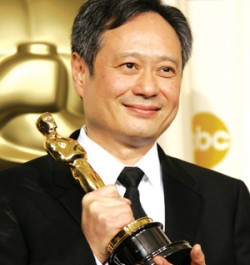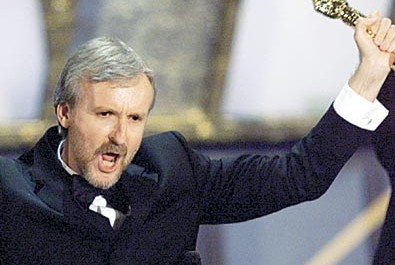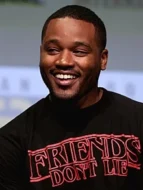Send Entries To: directorschairlamb@gmail.com
Deadline: 8th May 2021
Hello everyone, it’s time to announce the director that will be featured for April and this month, following his receipt of the BAFTA Fellowship, I’ve decided to go with Ang Lee.
After Lee finished film school, after a period of unemployment, Lee submitted the scripts for Pushing Hands and the Wedding Banquet to a competition sponsored by the Government Information Office of the Republic of China. These scripts came first and second respectively and brought Lee to the attention of producer Hsu Li-kong, who invited Lee to turn Pushing Hands into a film. Upon release, the film was a success in Taiwan, receiving 8 nominations at the Golden Horse Film Festival. The success of Pushing Hands led to The Wedding Banquet being made into a film, again with Hsu Li-kong as producer, which ended up winning the Golden Lion at the Berlin Film Festival and was nominated for Best Foreign Language Film at the Oscars and Golden Globes.
Lee then got his second Oscar nomination in two years with Eat Drink Man Woman, which was another critical and commercial success. The success of The Wedding Banquet led to Lee being hired for his first English language film when producer Lindsay Doran hired him to direct Emma Thompson’s script for Sense and Sensibility. Whilst it took a while for Lee to get accustomed to western filmmaking styles the film was a massive success upon release, grossing £135 million at the box office, helped by the success of the recent TV adaptation of Pride and Prejudice, and winning the Oscar for Best Adapted Screenplay.
After Sense and Sensibility, Lee directed two more Hollywood films, The Ice Storm and Ride With The Devil which, whilst critical successes, were not particularly successful at the box office, although The Ice Storm later had a resurgence in popularity on home media.
Following these, Lee reunited with Hsu Li-kong to direct a tribute to wuxia films with Crouching Tiger, Hidden Dragon. Working with a worldwide crew, upon release the film became the highest grossing film not in the English language at the time in the US and UK, being nominated for numerous awards, winning some technical awards and Best Foreign Language Film at the Oscars. The success of this led to Lee being hired to direct an adaptation of The Incredible Hulk. Mimicking the style of comic books, in terms of split screen cinematography, and being more focused on dialogue than action, the film received mixed reviews, despite being a financial success. This almost led Lee to retire from filmmaking, but his dad encouraged him to make more.
Lee returned to small scale films next with Brokeback Mountain. Despite originally noting how little he had in common with the story, he ended up being drawn to the depiction of rural American life and repression. Upon release the film was heavily acclaimed, winning the Golden Lion at the Venice Film Festival, whilst Lee became the first non-white director to win Best Director at the Oscars. Whilst Crash ended up winning Best Picture, it is now generally accepted that it should have gone to Brokeback Mountain instead.
Lee’s next film, Lust, Caution, ended up having a pretty rough distribution. Rated NC-17 by the MPAA, many theatres refused to play it, resulting in it grossing just over $4 million in the US, although this was still a success by NC-17 standards. In China though, 9 minutes of the film ended up being cut out, although it was released uncut in his native Taiwan. Whilst the film was submitted by Taiwan for Best Foreign Language Film at the Oscars, the Academy decided that not enough Taiwanese nationals were involved in it, and thus disqualified it from being nominated.
After making Lust, Caution and later Taking Woodstock, Lee went back to big budget Hollywood filmmaking with an adaptation of Life of Pi. Initially deemed un-filmable, Lee persuaded 20th Century Fox to invest $120 million and extensive 3D technology to bring the story to screen. Wanting to use 3D to push the boundaries of what could be done with film, upon release Life of Pi was a critical and commercial success, with Lee winning his second Oscar for Best Director.
Lee continued to experiment with how film could be presented with his next two films, in those instances being focused on frame rate. With Billy Lynn’s Long Halftime Walk, Lee wanted to see how a higher frame rate could be used to make the story feel more real. After deciding to go above 48 frames per second following the polarised response to The Hobbit trilogy, Lee decided to go with 120 frames per second, the highest frame rate used for a film at the time. Unfortunately for Lee, the expense of equipping cinemas with the technology to show the film in the intended 120 frames per second meant that only 5 cinemas worldwide could show it that way, in New York, Taipei, Los Angeles, Beijing and Shanghai, most cinemas showing it in the standard 24 frames per second. Upon wide release, the film ended up being a box office bomb and received a mixed to negative critical reception, with the decision to use the high frame rate for a drama being criticised.
Lee continued to film in 120 frames per second with his following film Gemini Man, combining this with state of the art deaging effects. Whilst more cinemas could show it at the higher frame rate than Billy Lynn’s Long Halftime Walk, most cinemas still were not able to show it at the full 120 frames per second and when I saw it, I ended up seeing it projected at 60 frames per second and, going into personal experience, this was one of the few times when I got a really bad headache watching a film. Gemini Man ended up being a critical and financial failure, receiving negative reviews for the story, with the 20 year development of the film being noted, whilst the high frame rate and deaging effects received a mixed response at best.
Tentatively, Lee’s next film is going to involve Lee working on a script by Peter Morgan, titled Thrilla in Manila, with Lee wanting Ray Fisher and David Oyelowo to star, although the full details of this project are unknown.
As a reminder, the films of Lee’s you can cover are listed below.
- Pushing Hands
- The Wedding Banquet
- Eat Drink Man Woman
- Sense and Sensibility
- The Ice Storm
- Ride With The Devil
- Crouching Tiger, Hidden Dragon
- Hulk
- Brokeback Mountain
- Lust, Caution
- Taking Woodstock
- Life of Pi
- Billy Lynn’s Long Halftime Walk
- Gemini Man
I look forward to reading whatever you send me




